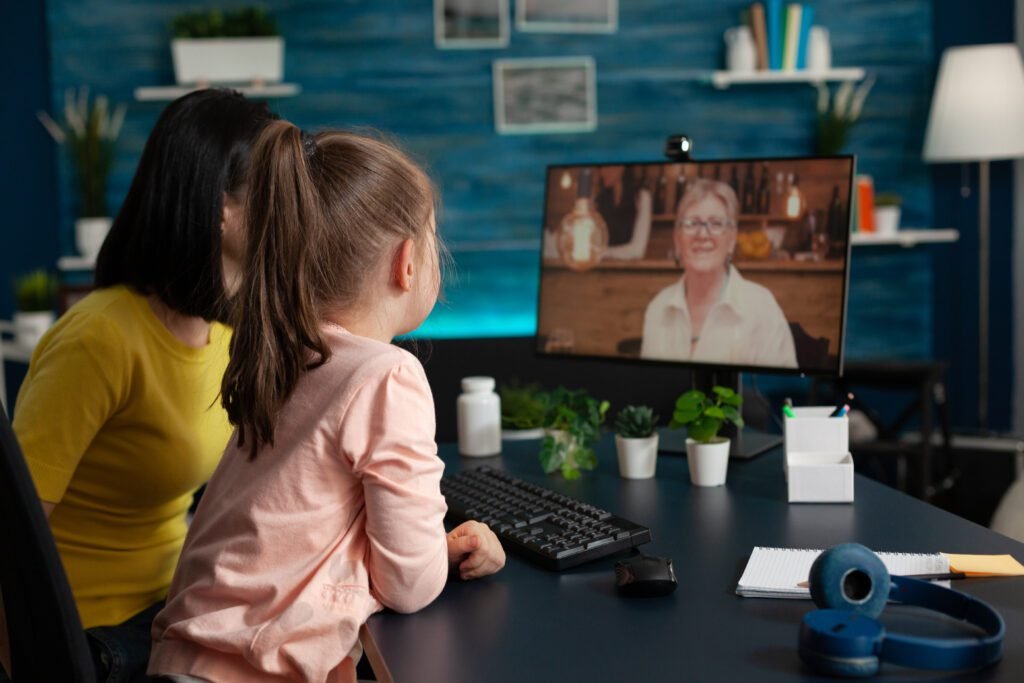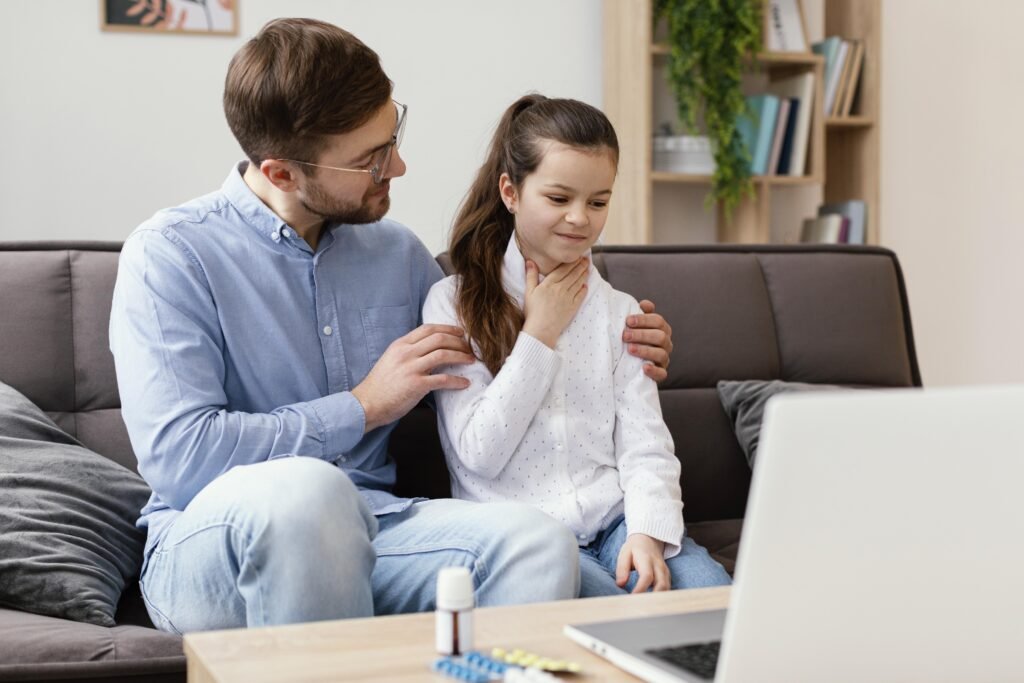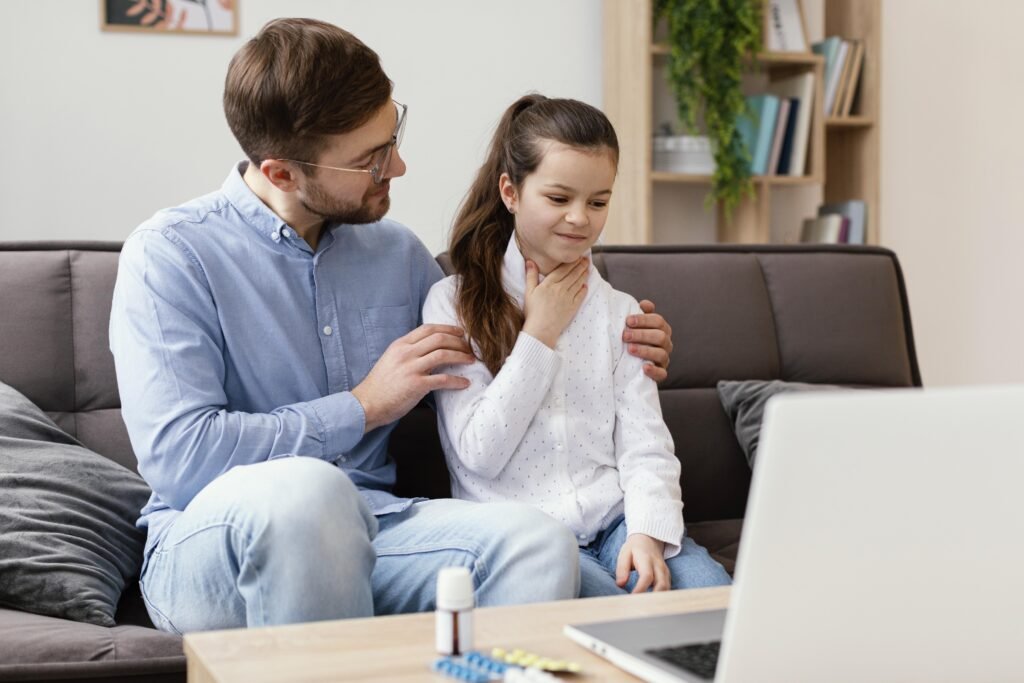As children move through each of these developmental stages of their lives, anxiety commonly show up for many children and adolescents. For some children, anxiety is limited to a particular circumstance, where feeling nervous might be a predictable emotion. For others, nervousness grows to anxiety that is more pronounced or severe in nature.
At Amy Brown Counseling, with over two decades of specialized experience in therapeutic practices, we work to take the power out of anxietyfor the children and teens we see, so that they can gain the confidence, assuredness and belief in themselves to move through their daily living without having their functioning halted by anxiety.
Comprehensive Insights into Anxiety Among Youth
Anxiety often shows up in various forms across different developmental stages of childhood, adolescence, and teenage years. At each developmental stage, anxiety can look different or unique for that particular child. When anxiety is properly identified and named by parents and children, future outcomes are more favorable–as that child or teen can begin to grow their awareness of self and understand what kinds of things prompt and/or soothe their anxiety.
Symptoms of Anxiety in Teenagers
Teenagers may experience anxiety as repetitive exaggerated worries about their daily responsibilities and activities. Such anxieties are commonly connected to social interactions, academic pressures (rather perceived and self induced, or real and required by parents), the emergence of romantic connections and dating during this age, desiring to perform highly at sports or other extracurricular activities, or anxiety related to family relationships and/or conflicts and stressors at home. These symptoms of anxiety can present in both physical and emotional ways, as most anxiety does, such as difficulty focusing, restlessness, fatigue, difficulty concentrating, moodiness, stomachaches, headaches, refusal to participate, and tearfulness/crying.
When to Seek Professional Help for Teen Anxiety
It’s important to note that when anxiety symptoms persist in such a way that they are impacting your child’s ability to function on a daily basis, it may be some evidence that your child needs to be seen by a licensed therapist and evaluated to possibly identify a deeper anxiety disorder issue. Your teenager might even begin to avoid social situations altogether, have significant changes in academic performance, or experience pronounced heightened social anxiety, where they are getting to the point that seemingly simple social interactions seem too overwhelming or feel impossible to them.
How Teens May Hide Their Anxiety
Another important factor to keep in mind is that adolescents and teens may work to conceal their anxiety, suffering with their internalized experience and doing everything they can to appear regulated, all the while suffering in silence. Sometimes physical symptoms are obvious and apparent, such as shaking or sweating, but other times you will need to check in with your teen about their symptoms of anxiety and help them to make the connection that what they might be feeling is a physical experience that is manifesting from an emotional place, such as stomachaches and muscle tension. In cases of more severe physical presentations of stress and anxiety, such as frequent diarrhea or irritable bowel syndrome, it is important to meet with your primary care provider or pediatrician to rule out any other physical health concerns that could be causing those symptoms.
Symptoms of Anxiety in Young Children
Anxiety in young children shows up through both behavioral and physical symptoms that parents can observe easily.
- Unusual clinginess to parents or caregivers
- Frequent crying or irritability
- Headaches, stomachaches, or muscle aches without medical cause
- Lack of appetite
- Separation anxiety during transitions
Why Young Children Struggle to Express Their Anxiety
Young children often lack the words to express anxiety, so it shows in their behavior instead.
- They may appear uncooperative or stubborn
- They might seem fearful without clear reason
- They can act tired, cranky, or withdrawn
- Exposure to media (like Inside Out) helps them identify and name their feelings
Effective Treatments for Childhood Anxiety
Therapeutic approaches to helping adolescents and teens cope with and overcome anxietyoften involve models such as Cognitive Behavioral Therapy (CBT) where kids can learn to understand the way their thoughts shape their behavior, including learning and implementing new coping skills. However, CBT is just one approach.
Other children and teens process deeper feelings related to their stress and anxiety through non-directive play therapy and sandtray therapy sessions, or unpack anxiety in parent or family sessions if it relates to those relationships and dynamics in their life. For many children and teens, they need to be truly heard, validated, and educated about how anxiety can present in our lives, and the ways in which we can overcome it.
How Parents Can Help During Their Child’s Panic Attack
The experience of witnessing your child or teen having a panic attack can be very overwhelming and distressing for parents. Parents often feel helpless and powerless as they see their child break down, melt down, or begin to experience physical symptoms that are alarming and scary. The first thing parents can do is understand their power in helping to co-regulate their child, physically and emotionally.
Begin with taking slow deep breaths, yourself as the parent, so that you can model staying calm for your child. Encourage them to breathe with you and remind them that they are safe in that moment. A helpful phrase to say is “I am with you, you are safe, this is a moment and it is going to pass”.
Physical Comfort and Grounding Techniques for Panic Attacks
Parents can help their child feel safe by offering comfort and guiding grounding techniques.
- Gentle physical touch (hand holding, hand on arm/shoulder/back)
- Encourage slow deep breathing together
- Engage the 5 senses (touch, sound, scent, sight, movement)
- Help cool down (fan or fresh air)
- Use soft music or familiar pleasant smells
- Encourage slow walking or using a fidget
- Parent stays calm and provides steady energy
Therapy Is A Proactive Way to Help Children and Teens Prevent Anxiety and Panic
We can help you to better understand how to support your child or teen through a panic attack, and help your adolescent or teen to also improve their own coping skills in order to reduce the frequency of panic attacks, or eliminate them altogether.
It starts with fostering open, honest communication and support within your family, household, your parent-child relationship. Children need to know that they can share their thoughts and feelings, especially their fears, openly without judgment so that they feel safe and understood.
It can also be helpful to help your child establish daily routines and habits that can improve their overall wellbeing, such as adequate amounts of sleep, exercise, hydration, nutrition, and social outlets. Doing so will increase your child or teens chances of coping with daily stressors and change more effectively. The idea is not to have expectations that your child will be free of stress or anxiety, but to know that they have established daily habits that can help strengthen their coping abilities when those stressful feelings and anxiety arise.
When Parents Have Anxiety Too
Something important to keep in mind as a parent who has a child or teen with anxiety, is to recognize if one or both parents/caregivers also regularly experience anxiety. Staying aware of the ways in which you project fear or worry into your child through your own anxiety, and reducing the need to overly question things, criticize, projecting high or unattainable expectations, or being overly worried about what others think can help not only our own anxiety but in turn help your child or teen with theirs.
Also, be aware of your non-verbal communication, such as how often you show fear or worry on your face when you are in your child’s presence. Be aware of your child being in earshot of grown-up conversations that they should not hear or take on, especially that involve adult level stressors and worries, such as finances.
Why Parents Should Consider Therapy for Their Own Anxiety
Anxious parents often have anxious kids, which we know to be true both in terms of nature and nurture, genetically and environmentally. It may also be helpful for parents to schedule some counseling sessions for themselves in order to process their own emotions and improve their healthy forms of coping, which in turn models for their children that it’s okay to seek help and that therapy can be a good form of support.
Frequently Asked Questions About Anxiety In Children, Adolescents, and Teens
Is it normal for a 15-year-old to have anxiety? How common is anxiety in 15-year-olds?
After providing therapy services for over 20 years, I’m not sure I’ve met a 15-year-old who hasn’t experienced some level of anxiety during their teenage years. It is very common amongst children and teens of all backgrounds and demographics, and is also treatable.
What is the 3-3-3 rule for anxiety?
The 3-3-3 rule for anxiety and panic attacks is a grounding technique that can help us to use 3 of our 5 senses to calm our body and distract us from the distressing feelings and experiences of anxiety. It is implemented by having the child or teen identify 3 things they can see with their eyes, and name them, 3 things they can touch with their body, and feel them, and 3 things they can hear with their ears, and identify them. This is very helpful for all ages as a way to calm the body and mind during moments of anxiety and/or panic.
What does severe anxiety feel like?
Severe anxiety is a heightened state of real or perceived fear and can be felt in many physical ways within the body such as rapid heart rate, fast breathing, feeling out of breath or unable to catch one’s breath, sweating, shaking, stomachaches, nausea, dizziness, lightheadedness, tingling in feet or hands, and more. It can also feel like it is hard to think straight or a feeling of needing to escape.
What are the stages of anxiety?
Anxiety can occur in a small way such as flutter in the stomach or feeling shaky and in a general way simply scared. It can progress to severe forms of panic where a child, teen or adult is experiencing a number of physical experiences all at once in a very real overwhelming way. At its worst stage, some people will say they feel like they are going to die.
Conclusion:
At Amy Brown Counseling, we are trained and skilled at supporting families and their children/teens through the challenges of anxiety and/or panic attacks. We provide personalized therapy services, both individual and family therapy (including play therapy) to address the specific concerns and needs for each child we see. Our goal is to use the power of our therapeutic relationship to provide support, education, and evidence-based approaches to assist your child in a way that is fostering resilience and overall well-being during any developmental stage or age. If you’re considering therapy for your child or have any concerns about their mental health, don’t hesitate to contact us. We’re here to support you every step of the way.



